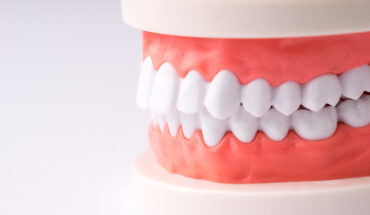Digestive issues can be uncomfortable to discuss, but they’re a critical aspect of human health and social life. Understanding common digestive conditions not only enlightens us about our bodies but also empowers us to seek appropriate treatment. We’ll delve into three prevalent issues affecting the digestive system.
Gastroesophageal Reflux Disease
GERD is a chronic condition where stomach acid flows back into the esophagus, causing symptoms like heartburn and acid regurgitation. The impact of GERD extends beyond physical discomfort; it can cause sleep disturbances and even lead to more serious conditions like esophageal cancer if left untreated. Lifestyle changes are often the first line of defense against GERD. These may include avoiding trigger foods like fatty, fried, or acidic foods, and beverages such as alcohol and caffeine. Raising the head of your bed and not lying down immediately after eating can also help. Medications like antacids and proton pump inhibitors may provide temporary relief, but it’s crucial to consult a healthcare provider for a long-term treatment plan.
Irritable Bowel Syndrome
IBS is another common digestive issue characterized by abdominal pain, cramping, bloating, and either diarrhea or constipation. Stress, diet, and hormones can all play a role in triggering symptoms. While IBS doesn’t cause permanent damage to the digestive system or increase the risk of more serious diseases, it can substantially lower one’s quality of life. Managing IBS often involves dietary changes. Foods high in fat, alcohol, and caffeinated or carbonated beverages are generally discouraged. Increasing fiber intake can help regulate bowel movements. You can also keep a food log to figure out what’s triggering your symptoms. Stress management techniques such as meditation and deep-breathing exercises can also help. Medical treatment options range from antispasmodic drugs to laxatives, and even certain antidepressants for pain management.
Inflammatory Bowel Disease
IBD is a term mainly referring to two conditions: Crohn’s disease and ulcerative colitis. Both involve chronic inflammation of the digestive tract, and symptoms may include severe diarrhea, fatigue, weight loss, and malnutrition. Unlike IBS, IBD can cause irreversible damage to the digestive system and may lead to life-threatening complications. Treatment for IBD is often multi-faceted, involving medications like anti-inflammatory drugs and immune system suppressors, as well as lifestyle modifications. Special diets may also be recommended to alleviate symptoms, and in more severe cases, surgery may be needed. Due to the complex nature of IBD, a healthcare team that may include a gastroenterologist, dietitian, and psychologist is often needed for comprehensive treatment.
The digestive system plays a central role in our overall health and social functioning. It’s crucial to pay attention to its signs and symptoms, and equally important to seek professional help for diagnosis and treatment. While digestive issues like GERD, IBS, and IBD are common, they’re not conditions that anyone should have to “just live with.” Effective treatments are available that can mitigate symptoms and offer a path to a more comfortable, socially engaging life.
Did you enjoy reading this article? Read more: People Who Have a Higher Risk of Gum Disease




